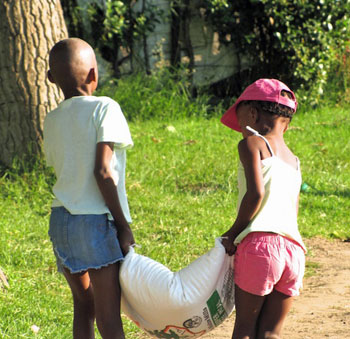Here’s what I’ve been thinking lately, shared first at ABP/Religious Herald:
You know, I’ve always thought that one of the principle practices of a good pastor is connecting people. But I’ve now come to believe that one of the principle practices of being a good human being is connecting people. Because the worst thing about walking through a hard time is feeling that you are all alone.
The truth is that we need to share our stories. In fact, without that sharing, it’s doubtful we can ever become the beloved community Jesus envisioned.
These days I’m enjoying some weeks of sabbatical before I get back in the pulpit. This means various things, including increased use of sunscreen and long-neglected closet organizing projects finally marked off the list.
This also means I get to go to church. I mean, I get to choose anywhere I want to worship, slip in the back of the sanctuary and sit in the pew.
 The other day I was sitting in worship in a small New England congregation where public prayer is a custom. The pastor got up during the prayer time and invited folks in the congregation to name their prayer requests out loud. The call for requests was broken up into three categories: prayers for the world, prayers for others, prayers for ourselves.
The other day I was sitting in worship in a small New England congregation where public prayer is a custom. The pastor got up during the prayer time and invited folks in the congregation to name their prayer requests out loud. The call for requests was broken up into three categories: prayers for the world, prayers for others, prayers for ourselves.
This week there was plenty to say when the pastor asked for prayers for the world: another Malaysian airliner down, continued bombing in the Gaza Strip, escalating gun violence in major American cities. Prayers for others was similarly populated: brother Joe; home recovering from back surgery; Aunt Marjorie, mourning the death of her cat; the local library fundraiser coming up in a few days.
Curiously, when the pastor got to prayers for ourselves, the entire congregation sat in silence.
Not one person stood up to say they were grieving a loss, living through a painful time in their marriage, worried about money, wondering if God exists.
Silence.
Thoughts tumbled one over one another in my own mind: I’m worried about coordinating an upcoming move; I’m grieving the death of my brother; I’m anxious about beginning a new job; I miss my kids; I feel so much sadness and hopelessness when I watch the news and I want to be able to talk to my friends and colleagues of other faiths about what’s going on in Israel and Palestine, but I don’t know how.
As I sat in the silence I wondered if I was the only one grieving or scared or sad.
But I know I wasn’t. I looked around at all the shiny faces in those pews and I knew I couldn’t be the only one. Still, presenting a perfect façade to the world around us, as so many of us do, seemed to be the accepted standard of the community that morning. I did not speak up.
I thought of this experience in church just the other day when I finally had the opportunity to introduce two friends of mine whom I am sure should have been friends with each other long before they’d ever met me. The reason? They shared a story — pain-filled life experiences that shaped them both into the incredible people I know them to be.
I’d tried for awhile to connect them, but I’d heard a lot of hesitation. “It’s too hard to tell my story,” one of them said. “I’m ashamed,” the other one told me.
But when my friends finally met each other and shared their stories, here’s what they told me: “She understood me.” “I finally realized I am not alone.” “Wow, it’s not just me who lived through this.” “I felt God was here.” “I made a new friend.”
I knew it!
There’s significant power in sharing our stories with each other. When we have the courage to name the pain we carry, we find out soon enough that we are not alone. And knowing we’re not alone often uncovers enough courage to take the next step in a painful situation.
If the church can be anything these days, don’t you think it should certainly be a place where those kinds of connections happen?
I do.
After all, we claim to follow the One who showed up, told his story and shared life with others who learned to tell theirs. And look how that kind of community changed the world.











